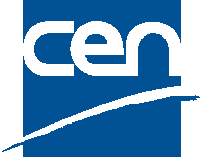
Brussels/London/Sophia Antipolis — 22 March 2004 A consortium of the European Standards Organizations and major international specification providers has been put together to improve the research/standards interface through the CO-OPERATION PLATFORM FOR RESEARCH AND STANDARDS (COPRAS). The launch of the new platform was announced at a meeting of all partners.
In the fast-moving world of information and communications technologies (ICT), research and standardization are closely inter-linked. Technologies need standardization, preferably global standards, in order to be fully exploitable by the market, and the results of near-market research need to be brought into the standards environment as quickly as possible to ensure interoperability.
COPRAS is a 3-year Support Action under the European Commission's Information Society Technologies (IST) Programme. The members of the COPRAS consortium are the officially recognized European Standards Organizations - CEN, CENELEC, ETSI, together with The Open Group and the World Wide Web Consortium (W3C). All are members of the ICT Standards Board (ICTSB), the co-ordinating forum for European ICT standardization. The ICTSB will be kept regularly informed of the progress and will discuss the emerging research results to ensure they are directed appropriately.
The IST programme targets a number of key areas where research will help to increase innovation and competitiveness in European industry and to contribute to greater benefits for all European citizens. At the same time the standards programme under the eEurope initiative will facilitate the adoption of the research results and provide feedback about their acceptance and challenges in their use.
The COPRAS project will bring together these policy initiatives by surveying European Commission funded IST projects for standards-related technologies and providing information on standardization to help progress research results through appropriate standards bodies. It will also provide guidance for future calls under the European Framework Programmes to ensure that further research projects benefit from a harmonized, efficient and fruitful interface with standardization.
The COPRAS project will examine new standards-related technologies evolving from over 300 European Commission funded IST research projects under the Framework 6 Programme spanning 23 key technology domains. The European Commission has earmarked funding of over €3.6 billion for research in these areas.
For further information about this news release, please contact:
James Boyd, CEN/ISSS Strategy Manager
Tel: +32 (0)2 550 0966
E-mail: james.boyd@cenorm.be
 About CEN
About CENBased in Brussels, Belgium, the European Committee for Standardization (CEN) is responsible for standardization in areas other than the electrotechnical and telecommunications fields. In the fast-moving domain of information and communications technologies, CEN has created the Information Society Standardization System (CEN/ISSS). In addition to the traditional CEN Technical Committees, this makes use of open Workshops, which are standards committees created whenever there is an identified need for consensus. They are open to all interested parties and their deliverables are published by CEN as CEN Workshop Agreements (CWAs).
Detailed information is available at
www.cenorm.be
Contact: James Boyd
Based in Brussels, Belgium, the European Committee for Electrotechnical Standardization (CENELEC) is officially responsible for standardization in the electrotechnical field. Its members have been working together in the interests of European harmonization since the 1950s, creating both voluntary and Harmonized Standards which have helped to shape the European Internal Market. CENELEC works with 35,000 technical experts from 28 European countries. Its work directly increases market potential, encourages technological development and guarantees the safety and health of consumers.
Detailed information is available at
www.cenelec.org.
Contact: Paco Cabeza-Lopez
Based in Sophia Antipolis (France), the European Telecommunications Standards Institute (ETSI) is officially responsible for standardization in telecommunications, broadcasting and certain aspects of information technology within Europe. As such, it also plays a major role in global standardization. ETSI unites almost 800 members from 55 countries inside and outside Europe, including manufacturers, network operators, administrations, service providers, research bodies and users - in fact, all the key players in the telecommunications arena.
Detailed information is available at
www.etsi.org.
Contact: Livia Rosu Lunguran
The W3C was created to lead the Web to its full potential by developing common protocols that promote its evolution and ensure its interoperability. It is an international industry consortium jointly run by the MIT Computer Science and Artificial Intelligence Laboratory (CSAIL) in the USA, the European Research Consortium for Informatics and Mathematics (ERCIM) headquartered in France and Keio University in Japan. Services provided by the Consortium include: a repository of information about the World Wide Web for developers and users, and various prototype and sample applications to demonstrate use of new technology. To date, nearly 400 organizations are Members of the Consortium.
Detailed information is available at
www.w3.org.
Contact: Marie-Claire Forgue
The Open Group is a vendor-neutral and technology-neutral consortium, whose vision of Boundaryless Information Flow™ will enable access to integrated information within and between enterprises based on open standards and global interoperability. The Open Group works with customers, suppliers, consortia and other standard bodies. Its role is to capture, understand and address current and emerging requirements, establish policies and share best practices; to facilitate interoperability, develop consensus, and evolve and integrate specifications and open source technologies; to offer a comprehensive set of services to enhance the operational efficiency of consortia; and to operate the industry's premier certification service.
Boundaryless Information Flow is a trademark of The Open Group in the U.S. and other countries.
Detailed information is available at
www.opengroup.org.
Contact: Scott Hansen